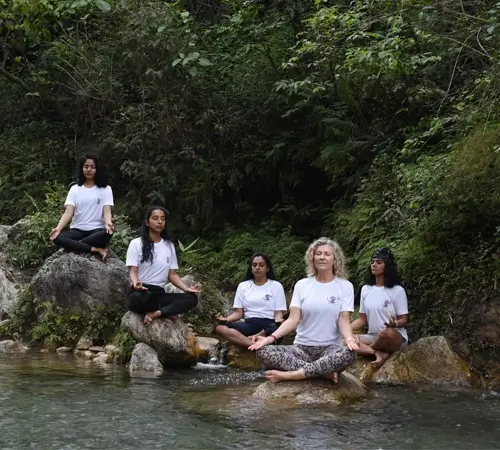Introduction
In the intricate landscape of mental health, where the shadows of depression cast a long and challenging journey, individuals are increasingly turning to alternative approaches for solace and recovery. Among these, the concept of retreats for depression has emerged as a beacon of hope. This article explores the transformative power of retreats as a holistic intervention for depression, delving into the unique elements that set these experiences apart from traditional therapeutic methods.
Understanding Depression
Depression, a multifaceted mental health condition, transcends mere bouts of sadness. It permeates the very fabric of one’s existence, affecting thoughts, emotions, and physical well-being. While traditional treatments such as psychotherapy and medication play a pivotal role, there’s a growing acknowledgment of the limitations inherent in these approaches. As a response, individuals are seeking comprehensive and alternative avenues, with retreats for depression offering a distinctive path to healing.
The Essence of Depression Retreats
Depression retreats represent a departure from conventional therapeutic models. Nestled in serene natural surroundings, these retreats provide an immersive environment aimed at holistic well-being. By integrating nature, expert guidance, and purposeful activities, they create a space conducive to healing, self-discovery, and personal growth.
- Nature as a Healing Sanctuary
The deliberate choice of natural settings for depression retreats is a testament to the therapeutic potency of nature. Surrounded by greenery or near calming bodies of water, participants are invited to disconnect from the relentless pace of modern life and reconnect with the healing essence of the natural world. The profound impact of nature on mental health is harnessed to create an atmosphere that fosters introspection and renewal.
- Mindfulness and Meditation Practices
A cornerstone of depression retreats lies in the integration of mindfulness and meditation practices. Rooted in ancient wisdom, these practices empower individuals to cultivate a heightened awareness of the present moment. In the context of depression, where ruminative thoughts can exacerbate distress, mindfulness serves as a potent tool for breaking the cycle. Participants learn to observe their thoughts without judgment, fostering inner calm and resilience.
- Holistic Therapies: Nurturing the Mind, Body, and Spirit
Depression retreats often embrace a spectrum of holistic therapies, recognizing the interconnected nature of mental, physical, and spiritual well-being. From yoga and acupuncture to massage and aromatherapy, these therapies contribute to a comprehensive approach to healing. Yoga, for instance, not only enhances physical flexibility but also nurtures mental clarity and emotional well-being. The integration of holistic therapies emphasizes the understanding that true healing involves addressing the entirety of an individual’s experience.
- Nutritional Support for Mental Wellness
The role of nutrition in mental health is increasingly acknowledged, and depression retreats incorporate nutritional support as an integral component. Participants receive education on the significance of nutrition and are provided with nourishing meals that support overall well-being. A well-balanced diet, rich in essential nutrients, becomes a foundation for sustained mental health, emphasizing the intrinsic connection between what we consume and how we feel.
- Group Support and Community Connection
Depression often breeds isolation, making the communal aspect of retreats particularly impactful. Group activities and support sessions create a sense of community, allowing participants to share their experiences, gain insights, and forge connections. The understanding and support of peers become powerful catalysts for breaking the chains of isolation, and the bonds formed during the retreat can serve as enduring sources of encouragement.
Conclusion
Depression retreats embody a paradigm shift in the approach to mental health, offering a nuanced and holistic perspective. While conventional treatments remain indispensable, these retreats provide a supplementary avenue for individuals seeking a more profound and transformative healing journey. By leveraging the therapeutic benefits of nature, mindfulness practices, holistic therapies, nutritional support, and community connection, retreats for depression offer a holistic sanctuary for those navigating the challenging terrain of depression.
In the realm of depression retreats, individuals find not only respite but a transformative path towards rediscovering hope and reclaiming their lives. Embracing healing through immersive experiences, participants embark on a journey that transcends the confines of traditional therapy, paving the way for a holistic and sustained well-being. As we navigate the complexities of mental health, retreats for depression stand as beacons of possibility, inviting individuals to embark on a journey of self-discovery, renewal, and lasting recovery.


